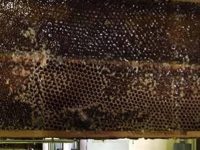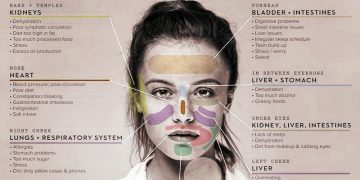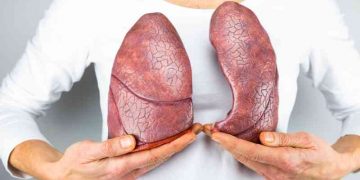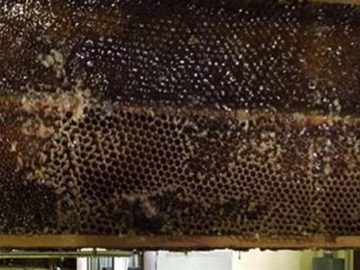Have you ever thought about what happens to your body when you eat processed noodles?
After seeing this video, you will change your mind before finishing off a portion of processed ramen noodles.
Generally, foods like ramen noodles have a long shelf life, and in turn, contain high amounts of food additive used to preserve cheap processed foods. Having an Instant ramen noodles meal you get to top up your body with Tertiary-butyl hydroquinone or TBHQ additive, which can weaken your organs or increase the likelihood of cancer and tumor growth.
Having conducted his experiment with a time-lapse video comparing fresh and preserved ramen noodles inside the stomach, the gastrointestinal specialist Dr. Braden Kuo of Massachusetts General Hospital concluded that the results had a striking difference.
While looking at a time interval of one hour or two hours processed ramen noodles are hard to be digested and the longer these noodles take the digest, the more complex chemicals your body is going to absorb.
Here is why you should stop eating ramen noodles right now!
TBHQ additive in small doses presents a serious danger to our health
The synthetic chemical, very often listed as an ‘antioxidant’ is a byproduct of the petroleum industry. TBHQ chemical acts as a preservative by blocking the oxidation of fats and oils. This product can be found in grocery store products and fast- food menu items as well as in varnishes, pesticides, cosmetics, and fragrances.
TBHQ used as a food additive is legal. Moreover, a joint FAO/WHO Expert Committee on Food Additives concluded that TBHQ was safe for human consumption at levels of 0-0.5 mg/kg of body weight.
The Codex Commission organization which is responsible for setting the international foods standards, guidelines and codes of practice calculated maximum allowable limits of TBHQ intake between 100 up to 400 mg per kg depending on the food it`s added to.
A surprising fact is that some foods, for instance, the chewing gum contains the highest allowance of TBHQ. According to the US Food and Drug Administration, TBHQ must not exceed 0.02 percent of its oil and fat content, leaving low-fat foods way more pumped up with the chemical additive.
Since different organizations accept different limits of safe intake and the amount of five grams being present in your system can be fatal the safest thing to do is to avoid the TBHQ as much as possible.
According to the Consumer’s Dictionary of Food Additives, exposure to just one gram of TBHQ poses serious health risks:
- Nausea and vomiting
- Ringing in the ears (tinnitus)
- Delirium
- Sense of suffocation
- Collapse
Because it is a complex chemical and the body is unable to flush it out it is slowly accumulated in your tissues.
Another study conducted by the Environmental Working Group stated the following health risks:
- Liver problems (at very low doses)
- Cell mutations
- Biochemical changes (at very low doses)
- Reproductive problems (at high doses)
Excessive Eating Ramen Noodles Will Get You a Metabolic syndrome
Another study published in the Journal of Nutrition concluded that excessive eating ramen noodles even when dieting and exercising may increase the risk of metabolic syndrome in women.
More precisely, having ramen noodles meal twice a week increases the risk of having a metabolic syndrome in women by 68%.
According to the Mayo Clinic “Metabolic syndrome is a cluster of conditions — increased blood pressure, high blood sugar, excess body fat around the waist, and abnormal cholesterol or triglyceride levels — that occur together, increasing your risk of heart disease, stroke, and diabetes.”
Nevertheless, similar studies have found out that processed noodles don`t have any significant nutritional value.
People who consume ramen noodles regularly have a deficiency of important nutrients like protein, calcium, phosphorus, iron, potassium, vitamin A, niacin, and vitamin C compared with non-noodle- eaters. Moreover, they are prone to eating excessive amounts of calories, processed fats, and sodium.
More of the Same
We have to face the fact that instant noodles don`t have any high-quality ingredients. A pack of quick ramen noodles contains palm oil and a load of preservatives while the flavor pack that goes together with it contains salt, monosodium glutamate, seasoning, sugar, and more.
On the other hand, Japan ramen noodles are made with wheat and cooked with hot water just like any other noodle.
Here are some of the most problematic ingredients in these noodles:
Benzopyrene
Benzopyrene contains benzene, a carcinogen known to cause leukemia and other cancers of blood cells.
The Taiwanese Department of Health in 2012 discovered two South Korean noodle products that contain benzene and a few hours earlier they found six more instant noodle products all made by the same company Nongshim Co, which makes the popular shin ramenyun.
The cancer-causing substance was detected in the flavor pack but the Officials denied the harming effect of the chemicals stating that they were minuscule.
Monosodium Glutamate (MSG)
One of the most controversial food additive that can cause brain fog, cytoplasm swelling, nuclei damage, neuron loss in the developing brains of fetuses as well as allergy-like symptoms including headache, chest pain and nausea is Monosodium Glutamate or MSG.
Glutamic Acid
Glutamic acid is non-essential amino acid found in MSG. It’s also is the most common excitatory neurotransmitter in the central nervous system. It’s known to cause skin, eye, and respiratory irritation.
Considering healthy options
Downing a portion of ramen noodle won`t make you dead but surely isn`t a healthy choice of meal. These foods have high levels of artificial ingredients and refined fats sugars as well as carbohydrates which can cause weight gain and conditions that are very hard to live with.
The safest option for a carbohydrate intake is rice noodles, soba noodles or couscous and all can be cooked in an instant.
You can always make a healthy choice by eating well-balanced meals and that won`t take much of your time.




































Connect with us